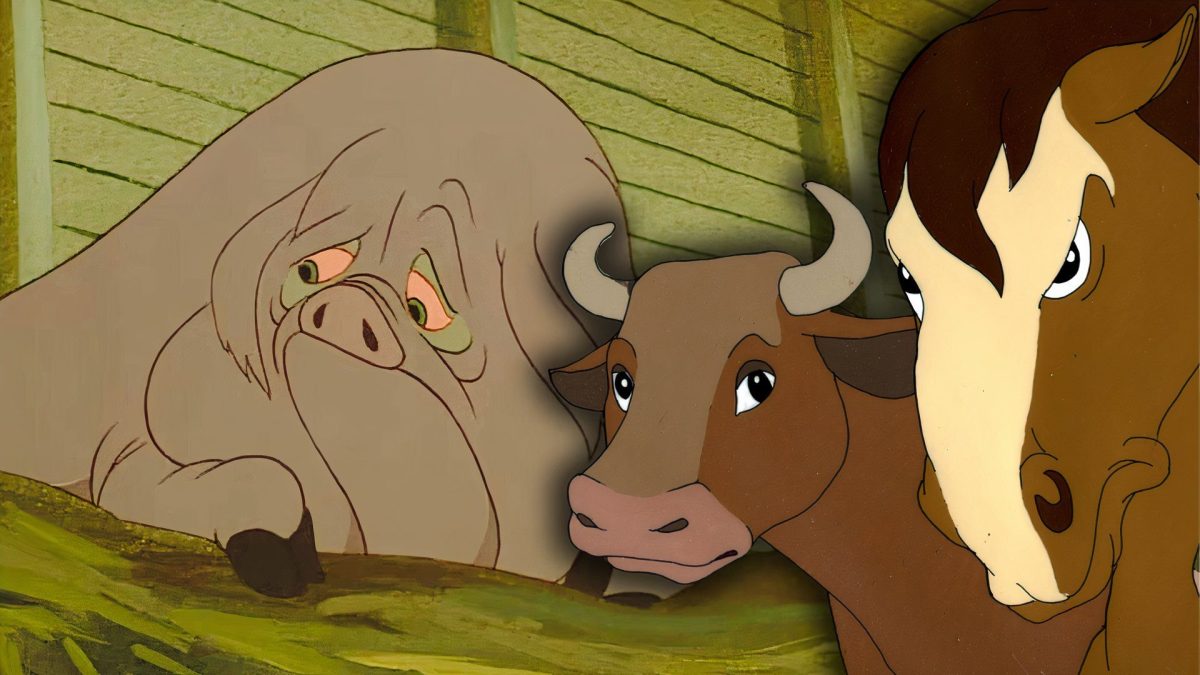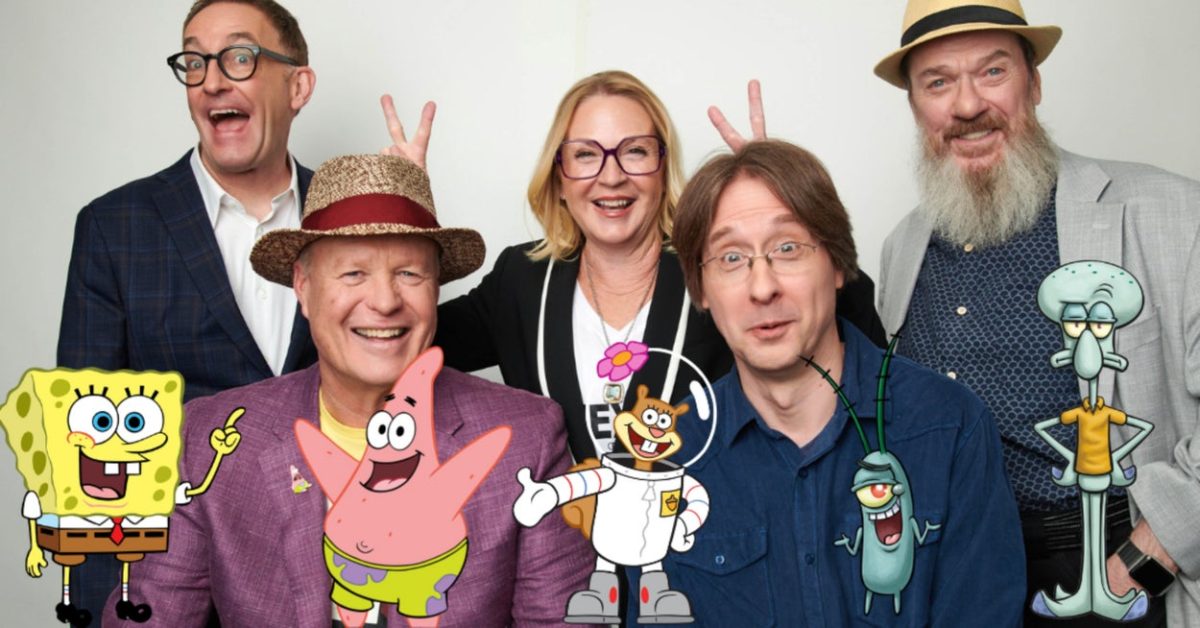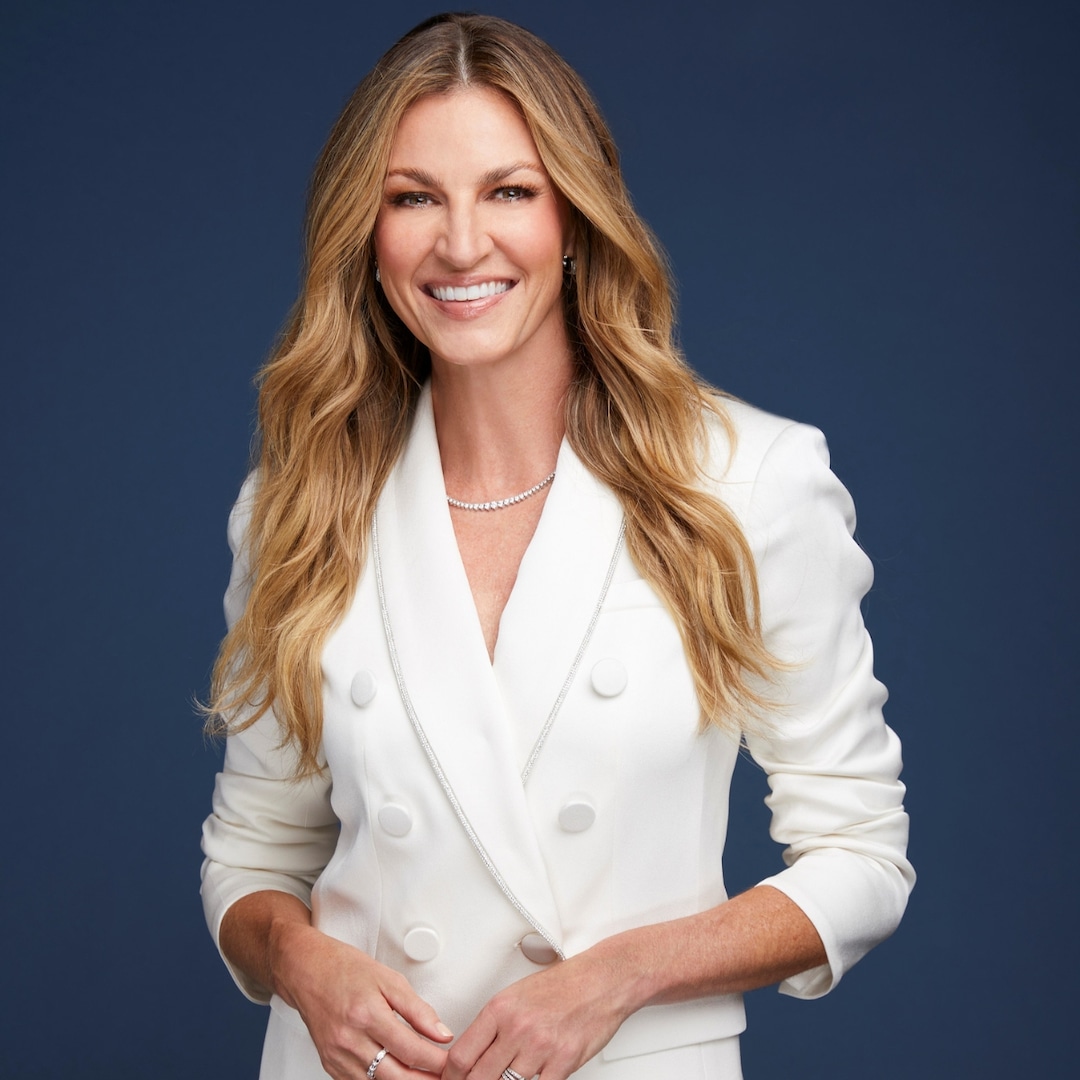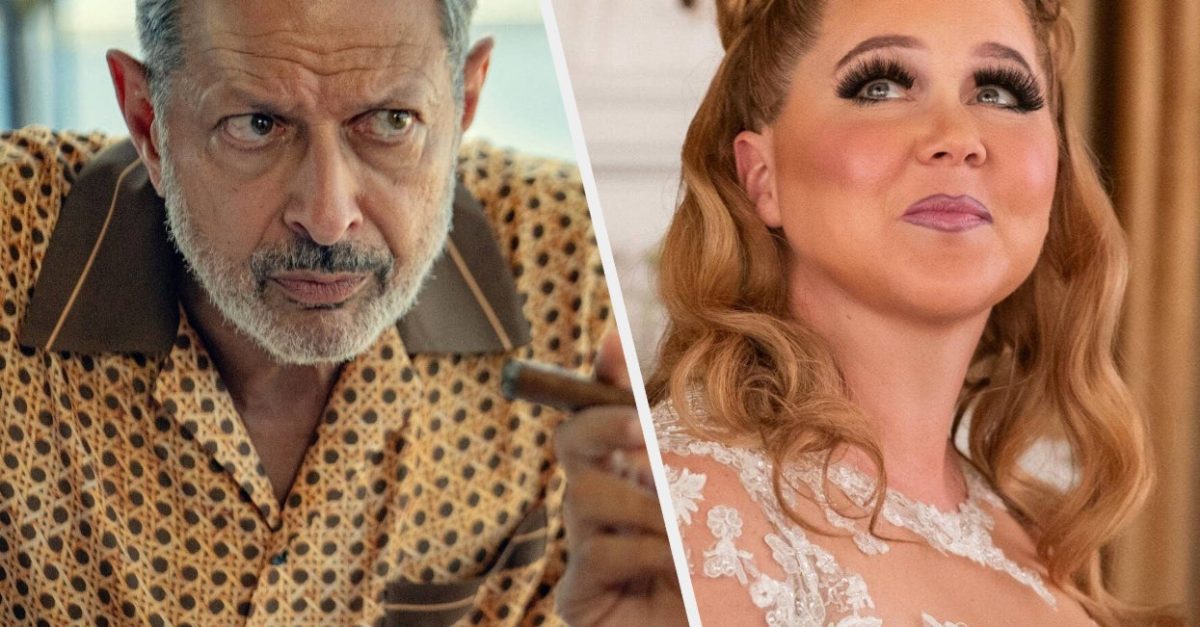
70 Years Ago the CIA Funded This Animated Political Satire
Oct 8, 2024
When it comes to films that are sometimes described as propaganda, a few titles immediately come to mind. Some of the earliest examples of film being used to illustrate political ideology come from none other than Sergei Eisenstein. October: Ten Days That Shook The World illustrated the overthrow of Czarist Russia, and Battleship Potemkin, now widely regarded as a masterclass in montage and editing, lifted communist ideology to take the place of religion, complete with aspects of martyrdom.
The tension between the Soviet Union and the United States during the Cold War would lead to propaganda and subversive satire of a different sort. One of the most prominent ways in which this played out was in the realm of science fiction. The red planet of Mars threatening invasion at any moment provided the perfect satirical vehicle, something that was picked up by Rod Sterling in an Episode of The Twilight Zone. “The Monsters Are Due on Maple Street” shows a small town becoming engulfed in the paranoia of an alien invasion after a teenager relays a story from a comic book.
In 1954, when the threat of the alleged “red menace” was at its peak, there was an animated adaptation of George Orwell’s Animal Farm that would prove to be one of the darkest and most subversive forms of satire. Orwell’s novel takes a simple farm and uses its animal occupants to depict the continual shift in power in Communist Russia, from the ideology of Lenin being carried on by Leon Trotsky, only to be corrupted and twisted into unbridled oppression under the regime of Stalin and his right-hand man, Lavrentiy Beria. Unbeknownst to some, the adaptation was covertly funded by the CIA and would be one of many products to come from America meant to weave discontent towards the Soviet Union.
Subversive Acts Behind the Scenes
Louis De Rochemont Associates
The aspect of the CIA being involved in financing a film such as Animal Farm almost seems ludicrous when viewed through our modern sensibilities. The truth of the matter is that considering the lengths that the United States would go through to get a leg up on the spread of communism, it’s not at all surprising. Secret deals were fostered with members of the Axis, many of whom were responsible for some of the most heinous acts in history.
Shiro Ishii, who performed several human experiments on live individuals as the head of Unit 731 in Japanese-occupied Manchuria, bargained for his freedom with the data he obtained and helped America develop several biological weapons. Nazi war criminal Klaus Barbi, known as the ‘Butcher of Lyon,’ evaded trial and arrest due to his cooperation in anti-communist activities and was even assisted by the American government in his flight to Bolivia to evade justice.
Any means to outmaneuver the Soviet Union, either on the world stage or, in the case of Animal Farm, utilize a means of entertainment to undermine the government, was seized upon. Stuka Pilot, the autobiography of the bomber pilot and unrepentant Nazi Hans Ulrich Rudel, would be heavily edited and marketed to American readers due to its depictions of the pilot’s various missions against the Soviet Union during wartime.
When the rights were purchased for Animal Farm by the CIA after Orwell’s death, much of the production was helmed by individuals who had spent a considerable amount of time making newsreels. At the time of Animal Farm’s production, many prominent Hollywood writers and directors, most notably Dalton Trumbo, had been blacklisted by Hollywood for alleged ties to communism. It’s ironic that an animated film meant to show the corruption and control of a regime came into existence under similar methods.
Related 10 of Disney’s Animated Propaganda Films, Ranked The magical world of Disney produced a few (racist and patriotic) propaganda films during World War II.
Portraying the Roles of Power and Persecution
Louis De Rochemont Associates
The greatest strength of Animal Farm is the way it portrays the rise to power in Communist Russia. This is done in a location that is symbolic of the revolution that resulted in the Bolsheviks seizing power in 1917. The farm, the well-established symbol of any agrarian society, was pivotal at the start of the Russian Revolution and, because of the collectivization process instituted under Stalin, would cause widespread grief and suffering. Animal Farm illustrates the imbalance of power and shameless grabbing by its main characters. With the majority of Russia’s population at the time being serfs and peasants who manned vast farms, it served as the perfect setting. Ultimately, the farm becomes its own separate country throughout the duration of Orwell’s story.
As is the case with any revolution, the ideology that is based on establishing a beneficial society is full of roads paved with good intentions. The saga of Animal Farm begins with an elder pig named Old Major, who embodies Karl Marx, the founder of communist ideology. Meanwhile, Vladimir Lenin, the revolutionary who would be responsible for taking power from the Czarist regime, is represented by Farmer Jones, drunk with power and exerting oppressive control over the animals. The death of Old Major sets up a power struggle between two pigs, Snowball and Napoleon.
The struggle for power is directly related to that of Leon Trotsky and Josef Stalin, which occurred following the death of Lenin. Snowball, wanting to fulfill Old Major’s vision of an agrarian utopia, is an idealistic leader who sees good intentions in the principles laid out by Old Major before the revolt. Napoleon, whose fearmongering and grooming of several dogs, who can be seen as symbolic of the NKVD (The Soviet secret police who would later be transformed into the KGB), soon seizes power in the Junta and chases Snowball away, literally “sicking his dogs” on him. The sequence in which Snowball is exiled and murdered is a near-perfect example of art imitating life, as Trotsky was assassinated while in exile.
With Napoleon seizing complete control, the farm becomes less of a utopian worker’s paradise and an oppressive state ruled by harshness and oppression. Napoleon and his pack of dogs cannot rule without abolishing democracy, and through the assistance of Squeeler, an apparent stand-in for Lavrentiy Beria, Stalin’s ruthless head of the NKVD, total control is established. Some of the more infamous aspects of Stalin’s regime are depicted throughout Animal Farm, most notably the show trials in place to purge dissenters and opponents and the process of collectivization.
Collectivization was when farms all over the Soviet Union contributed their harvested crops to the state to feed the whole population. The collective farm resulted in widespread famine and death among the population. Animal Farm illustrates this corruption of ideology, with those in power reaping the benefits from the toil of others. Napoleon and his ilk became the very thing that the revolution sought to overturn.
Related Best Movies from the Soviet Union You Have to Watch Next, Ranked Every world cinema fan should watch these movies from the Soviet Union.
“All Animals Are Equal, But Some Are More Equal Than Others”
Louis De Rochemont Associates
The lessons that we learn from Animal Farm extend far beyond what’s presented on screen. From the backstory of its production, we learn that any form of art can be used in a subversive way to critique any regime. Even works of art that have been received by many as brilliant forms of satire can start out with ill intentions to serve as propaganda. The fact that Orwell’s writing was purchased for this purpose is a reminder of the “red scare” and the lengths a government would go to sway public opinion.
Despite whatever the intent might have been when Animal Farm was financed by the CIA, its artistic merit and quality far overshadow it. Animal Farm should always be regarded as one of the most incredible and poignant forms of political satire ever brought to life and held in the same regard as Watership Down as an example of animation having depth and a means to explore darker subjects that provoke a strong emotional response.
Even in recent years, with movies like The Death of Stalin and others, Animal Farm gives us an unfiltered look at the rise of an ideology that brought nothing but pain and suffering to those who believed in the concept of utopia it promised. If 1984 is continually held up as the ultimate vision of a dystopia where suffering occurs, it should be remembered that Orwell laid out an allegory for real-world events in Animal Farm and some that have the potential to repeat themselves when we follow with blind obedience. Stream Animal Farm free on Tubi or Freevee.
Publisher: Source link
SpongeBob Cast Shares Heartfelt Favorite Episodes
I asked two main questions throughout our conversation. My first question: It's been 25 years of iconic quotes, hilarious episodes, and memorable moments. From the perspective of the people who voiced the characters and produced the show, is there a…
Dec 23, 2024
Erin Andrews Shares Her Celine Dion-Inspired Holiday Tradition
We interviewed Erin Andrews because we think you'll like her picks. Some of the products featured are from Erin's brand WEAR by Erin Andrews. Our writers and editors independently determine what we cover and recommend. When you buy through our links,…
Dec 23, 2024
TV Shows That Got Canceled In 2024
TV Shows That Got Canceled In 2024 Which 2024 canceled TV show will you miss the most? Share your pick in the comments! Disclaimer: This story is auto-aggregated by a computer program and has not been created or edited by…
Dec 22, 2024
How The Talk Emotionally Ended After 15 Years
The Talk has officially said "Goodbye." After 15 seasons and 2,993 episodes, the CBS daytime show came to an end on Dec. 20 with a heartfelt farewell from hosts Akbar Gbajabiamila, Amanda Kloots, Natalie Morales, Jerry O'Connell and Sheryl Underwood. The episode began with a standing ovation for the…
Dec 22, 2024











